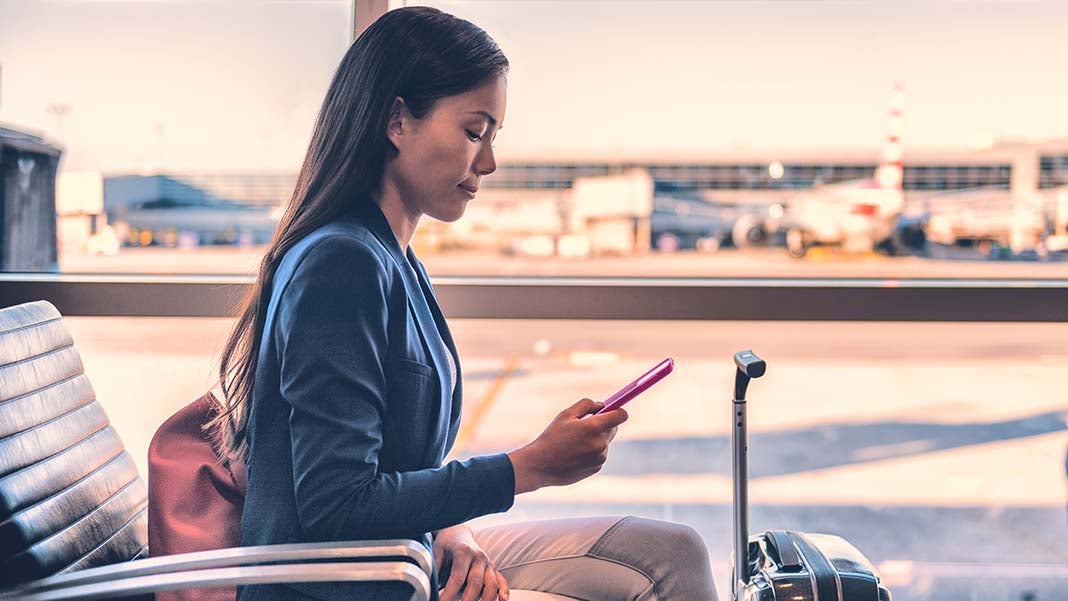
Developments in technology are making it easier than ever before for people to live their lives on the move. No longer confined to the office, an increasing number of professionals are choosing to switch to the life of the digital nomad—working as they travel, with complete flexibility on location and balance struck between work and play.
From freelance software developers and web designers to travel bloggers and creative consultants, digital nomads credit their devices with being both their mobile office and their livelihood. Understandably, this makes device security incredibly important. There are a range of things to consider when it comes to mobile working from laptops, smartphones and tablets—and Virtual Private Networks, once known as the go-to service for teenagers sidestepping download restrictions, have stepped up to the plate.
So, what makes VPNs useful to the average digital nomad? From improving security to saving money, here are a few of the highlights.
Securing the Unsecured
A key use for VPNs, and one of their main selling points aside from browsing anonymity, is security. Working on the move often involves logging on to sensitive documents like client work or online banking data from unsecured Wi-Fi networks. While free Wi-Fi at the airport or in a coffee shop can be a lifesaver when signal is poor, or when someone is looking to save money on their data allowance, these kinds of network are laden with risk.
Connecting to spoof networks, designed to look like legitimate Wi-Fi but set up with the intention of stealing data, is just one issue that can arise when working remotely. Even when using official networks in public spaces, low-quality encryption or a lack of any kind of encryption protocols can leave private data exposed to hackers.
By connecting to these networks via a VPN, digital nomads can ensure that whatever they are sending is heavily encrypted and won’t fall foul of attack. In the case of mobile banking, where SSL stripping is a prominent threat, VPNs protect against hidden threats as well as those which can arise simply from being complacent. If a well-encrypted connection does get intercepted, an attacker would only be able to see jumbled numbers and letters—which look meaningless—rather than private data.
Access to News and Social Media
Around the world, different locations have different regulations on things like social media access and messaging services. Certain news sites are also set up so that they can only be viewed by users in specific geographical locations—meaning that for someone who is globe-hopping for work, accessing their usual news sources can get tricky.
One of the benefits of a VPN service is that as well as hiding your IP address, so that it’s impossible to tell where you’re actually browsing from, you get the option of connecting to the internet from any of the VPN provider’s server locations. Some offer more options than others, but this means a user working from Singapore or Uganda could browse the web as if they were logging on in Australia or the USA.
Whether it’s just to access Facebook without paying a social media tax, or to read the LA Times online from a country within the EU, international citizens can use VPNs to use the internet just like they’re living and working from a set location.
Saving Money on Flights and Calls
The other key reason for digital nomads to use VPNs is to save money. Privacy and security may be the reasons that Virtual Private Networks were invented, but savvy internet users have found plenty of other things they’re good for, and getting discounts on flights and VoIP calls are just a couple of notes on a growing list.
The more you fly, the more attention you pay to possible tactics for getting discounts. While many people clear their browser cookies in the hope of lowering prices, which can sometimes rise the more you view a particular set of flights, using a VPN to shop around is a less widely-adopted technique.
Research has shown that connecting to a server in another country can knock hundreds off the price of your flights—whether it’s booking USA to Spain flights as if you’re in France, or flights with Qatar Airways as if you’re booking from Qatar. Airline companies frequently offer different prices to people booking in different locations, and digital nomads who’ve observed the varied cost of transport can save a pretty penny by using this software to get the lowest price.
Aside from travelling, another area where it’s helpful for a mobile worker to save money is on calls. Depending on your location, VoIP call providers like Skype may become completely unavailable, or have higher prices for certain add-ons than you’re used to. For someone living permanently in a new location, adjusting to different services and price brackets will become a fact of life—but if you’re just passing through, it’s worth knowing how to get the most for your money.
Just as you can shop for flights as if abroad using a VPN, you can do the same for VoIP services. Simply connect to a server in a location that has free or cheaper VoIP access and just like that, communicating with friends, family and clients is as easy as it’s ever been.
1968 Views












